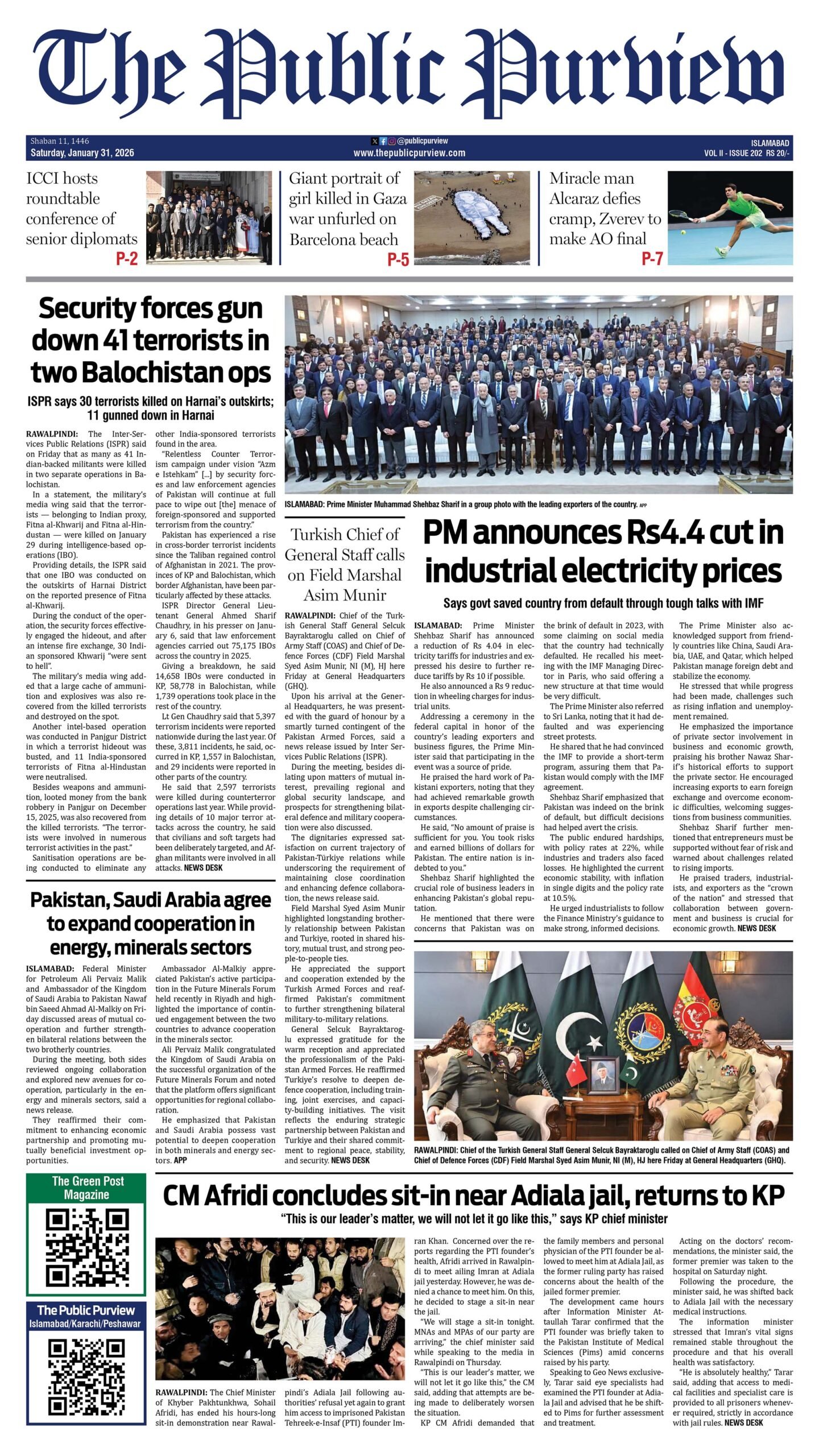Dr Akram Zaheer
A global competition has developed to redefine the fundamental structure of international affairs. A group of states most notably Russia, alongside strategic partners like Iran, North Korea and China have appeared to revise the core principles that sustain the international order. Although the forms of governance, ideological orientations, national interests and capabilities of these countries differ but these powers share a collective aspiration to consolidate autocratic governance domestically while asserting influence and control over regions of strategic importance globally. Aiming to reshape power dynamics, they favour coercive measures, including military force and economic manipulation, to resolve territorial disputes. These states are also increasingly leveraging the economic and energy dependencies of other countries to their advantage, in attempts to eat away the structural foundations of the United States’ global power, including its military and technological pre-eminence, the status of the U.S. dollar as the world’s reserve currency and its extensive network of alliances and partnerships. This coordinated revisionist stance does not yet form an explicit alliance or “axis” akin to the bloc alignments of the Cold War. The U.S. administration has reiterated that it is not seeking a confrontational bloc-based strategy; however, the actions of these powers demand a calculated and decisive response to prevent such divisions. The Biden administration, in recognizing this need, has adopted a comprehensive strategy aimed at countering the perception that the United States is in terminal decline an assumption held by these powers, which see America as increasingly fractured both domestically and within its international partnerships. According to their assessments, America is a nation characterized by internal political paralysis, waning public trust in government institutions and a foreign policy undermined by the very systems of alliances and international norms it once helped establish and support.
In response, President Joe Biden and Vice President Kamala Harris have enacted a “strategy of renewal” designed to fortify U.S. competitiveness domestically and rejuvenate key diplomatic relationships abroad. This dual strategy focuses on rebuilding and strengthening domestic foundations through unprecedented investments in infrastructure, technology and competitiveness while concurrently engaging in a rigorous diplomatic effort to reaffirm and, where possible, strengthen existing alliances. This approach seeks to disprove the notion held by revisionist states that the United States is unwilling or unable to maintain its global leadership. Indeed, such perceptions are not merely miscalculations but are actively dangerous, as they embolden these states to pursue policies that undermine the collective vision for a world order marked by openness, security and prosperity. The Biden administration’s vision entails fostering an international environment where states can freely determine their own partnerships and policies. In this vision, the global economy is characterized by fair competition, transparency and inclusivity, creating opportunities for widespread economic empowerment. Technology, in this context, is envisioned not as a tool for control but as a vehicle for individual empowerment and collective advancement. This vision upholds international law, with core principles enshrined in the United Nations Charter, while advocating for universal human rights and recognizing the necessity for evolving institutions that can adapt to emerging geopolitical realities.
To maintain and sustain this vision, the Biden administration has underscored the importance of strategic endurance and adaptability. The administration’s approach, focused on strengthening the U.S. geopolitical standing, requires a sustained commitment across successive administrations, ensuring that these efforts do not dissipate in the face of changing domestic politics. This continuity is crucial not only for countering revisionist narratives but also for reinforcing the international community’s confidence in U.S. leadership. As revisionist states may likely deepen their cooperation to offset their individual limitations, the United States must simultaneously deepen its commitments to allies and partners to counterbalance such strategies effectively. This requires more than maintaining alliances; it necessitates actively reinforcing the trust of allies in America’s role as a reliable, stabilizing force. Moreover, this strategy emphasizes the importance of restoring public faith within the United States regarding the efficacy and purpose of its global leadership. By fostering national unity and consensus on foreign policy, the Biden administration aims to ensure that Americans perceive international engagement as not only beneficial but essential to the nation’s long-term prosperity and security. This commitment to renewing public trust is grounded in the conviction that American leadership, when disciplined and strategically applied, can play a pivotal role in shaping a stable and prosperous world order.
Four years into the administration’s implementation of this strategy, there are indications that the United States is indeed in a stronger geopolitical position than it was previously. However, this strengthened position is not a cause for complacency. The challenge posed by revisionist powers is not static; it demands ongoing vigilance and readiness to adapt to new strategies and alliances among these states. As they deepen their economic and military ties to counterbalance the United States and its allies, the U.S. response must be dynamic and multifaceted, addressing both immediate threats and longer-term structural shifts in the global order.






 Today's E-Paper
Today's E-Paper